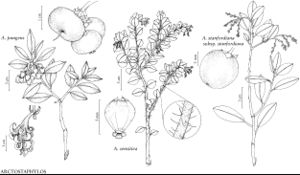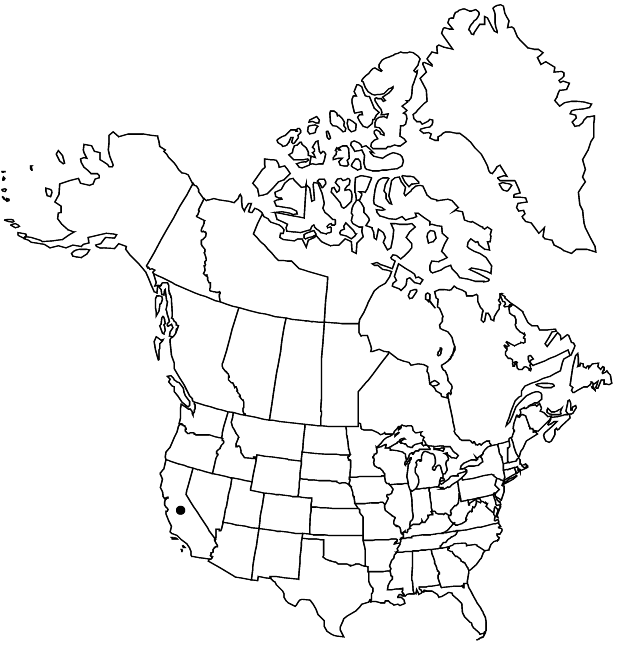Arctostaphylos sensitiva
Madroño 1: 85. 1922 ,.
Shrubs, erect or mound-forming, 1–2 m; burl absent; bark on older stems red, smooth; twigs densely short-haired with longer gland-tipped hairs. Leaves bifacial in stomatal distribution; petiole 1–3 mm; blade light green abaxially, dark green adaxially, shiny, orbiculate to orbiculate-ovate, 1–2.2 × 0.8–1.8 cm, base truncate to ± lobed, margins entire, cupped, surfaces smooth, glabrous, midvein hairy. Inflorescences panicles, 4–8-branched; immature inflorescence pendent, branches spreading, axis 0.5–1 cm, to 1 mm diam., densely short-hairy with longer gland-tipped hairs; bracts appressed, scalelike, deltate, 0.5–2 mm, apex acute, surfaces glabrous. Pedicels 3–5 mm, glabrous. Flowers 4-merous; corolla white to pink, urceolate; ovary white-hairy. Fruits subcylindric, 3–4 mm diam., glabrous. Stones distinct (breaking apart in mature fruit). 2n = 26.
Phenology: Flowering winter–early spring.
Habitat: Sandstone uplands in maritime chaparral or closed-cone conifer forests near coast
Elevation: 100-600 m
Discussion
Of conservation concern.
Arctostaphylos sensitiva occurs in Marin, San Mateo, and Santa Cruz counties.
Selected References
None.

